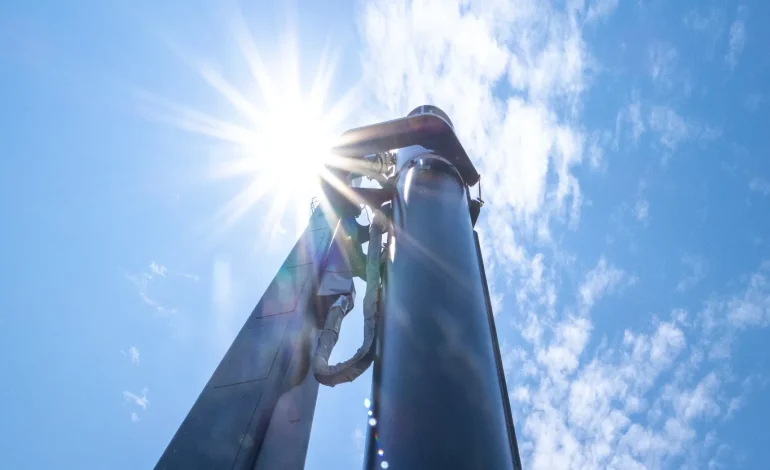Rocket Lab shares surged 25% in after-hours trading on Tuesday, driven by strong third-quarter revenue growth and the announcement of its first customer for the upcoming Neutron rocket.
The space infrastructure company reported Q3 revenue of $104.8 million, a 55% increase from $67.6 million during the same period last year, beating Wall Street’s expectation of $102 million. The news came as Rocket Lab stock, which has almost tripled in value over the last three months, continues its impressive run.
Rocket Lab reported a net loss of $51.9 million, or 10 cents per share—better than analysts’ expectations of an 11-cent loss. For Q4, Rocket Lab forecast revenue between $125 million and $135 million, positioning the company to end the year with approximately $430 million in annual revenue. The company’s backlog has also risen to $1.05 billion, underscoring the strong demand for its services as the global space industry expands.
Rocket Lab announced a landmark deal for Neutron, its reusable medium-lift rocket slated for launch in 2025. A confidential commercial satellite constellation operator has signed a contract for two Neutron missions, scheduled for mid-2026, with pricing “consistent with our target” of $50 million per launch. Securing the first Neutron customer represents a critical step in Rocket Lab’s strategy to tap into the larger commercial and national security launch markets, where demand for medium-lift vehicles is projected to grow.
CEO Peter Beck highlighted that Neutron’s development remains a focal point for the company, with significant resources dedicated to preparing the rocket and its Archimedes engines for launch. Rocket Lab expects the rocket will become eligible for the US Government’s National Security Space Launch program in the future, a lucrative sector with a $5.6 billion contract pipeline over the next five years.
The bulk of Rocket Lab’s Q3 revenue came from its Space Systems division, which saw revenue rise to $83.9 million from $46.3 million a year ago. Space Systems, which designs and sells satellite components and builds spacecraft, has become a significant growth driver for Rocket Lab. Meanwhile, the Launch unit, which operates the company’s small Electron rocket, generated $21 million in revenue, a slight decline from $21.3 million last year.
Electron, Rocket Lab’s small launch vehicle, has solidified its position as the world’s third-most frequently launched orbital rocket in 2024, behind SpaceX and China’s primary launch providers. This year, Electron has completed a record 12 launches, securing $55 million in additional launch contracts in Q3 alone.
Rocket Lab is also making strides to prepare for an industry expected to demand over 10,000 satellite launches by 2030, a market that the company values at around $10 billion. Neutron, designed with reusability and medium-lift capabilities, will complement Electron’s established market for smaller payloads and enable Rocket Lab to compete for more sizable government and commercial contracts.
Rocket Lab’s stock has surged 165% so far this year, reflecting investor optimism in its ambitious expansion and technological advancements. The stock closed at $14.66 on Tuesday, followed by a 22% jump in after-hours trading. As Rocket Lab continues to grow its customer base and prepare for Neutron’s launch debut, it remains well-positioned to capitalize on the expanding demand in both commercial and government space sectors.
Looking ahead, Rocket Lab’s strategic investments and innovations signal that it is on track to capture a significant share of the evolving space launch market. However, the sector remains competitive, with companies like AST SpaceMobile set to report later this week.
With input from CNBC and Investor’s Business Daily.









